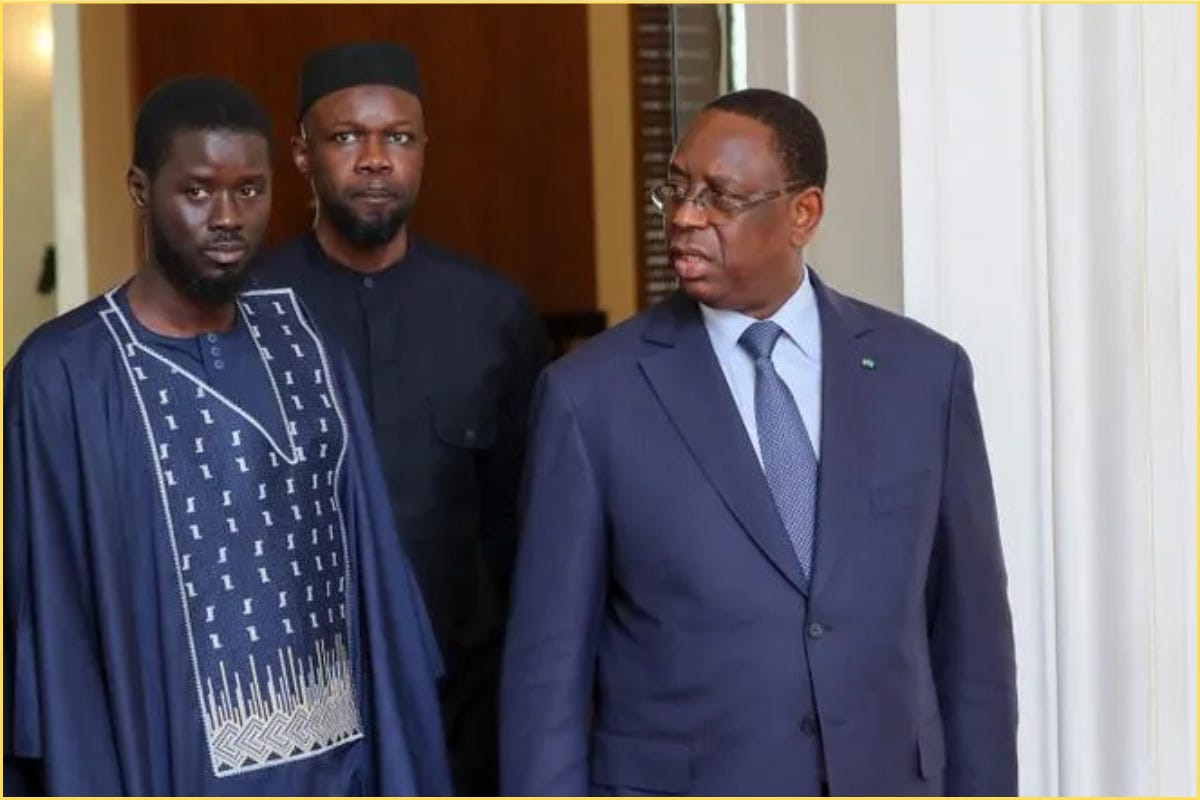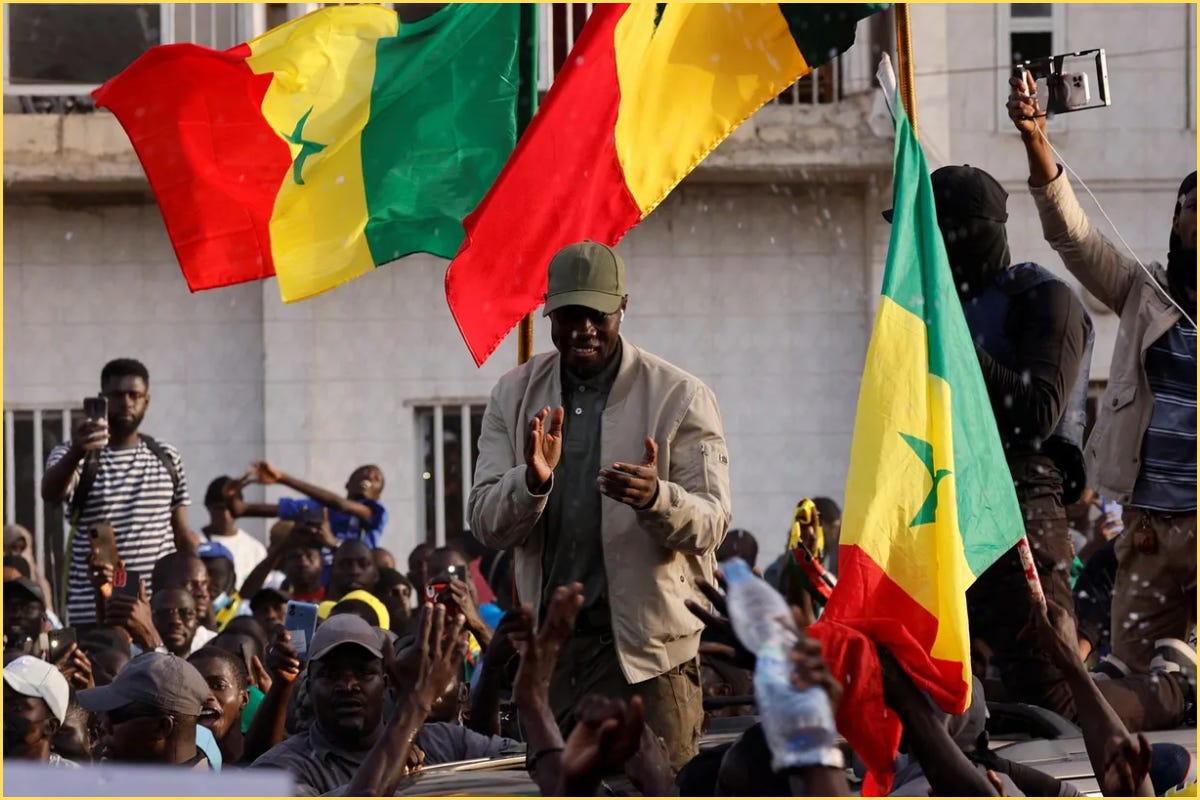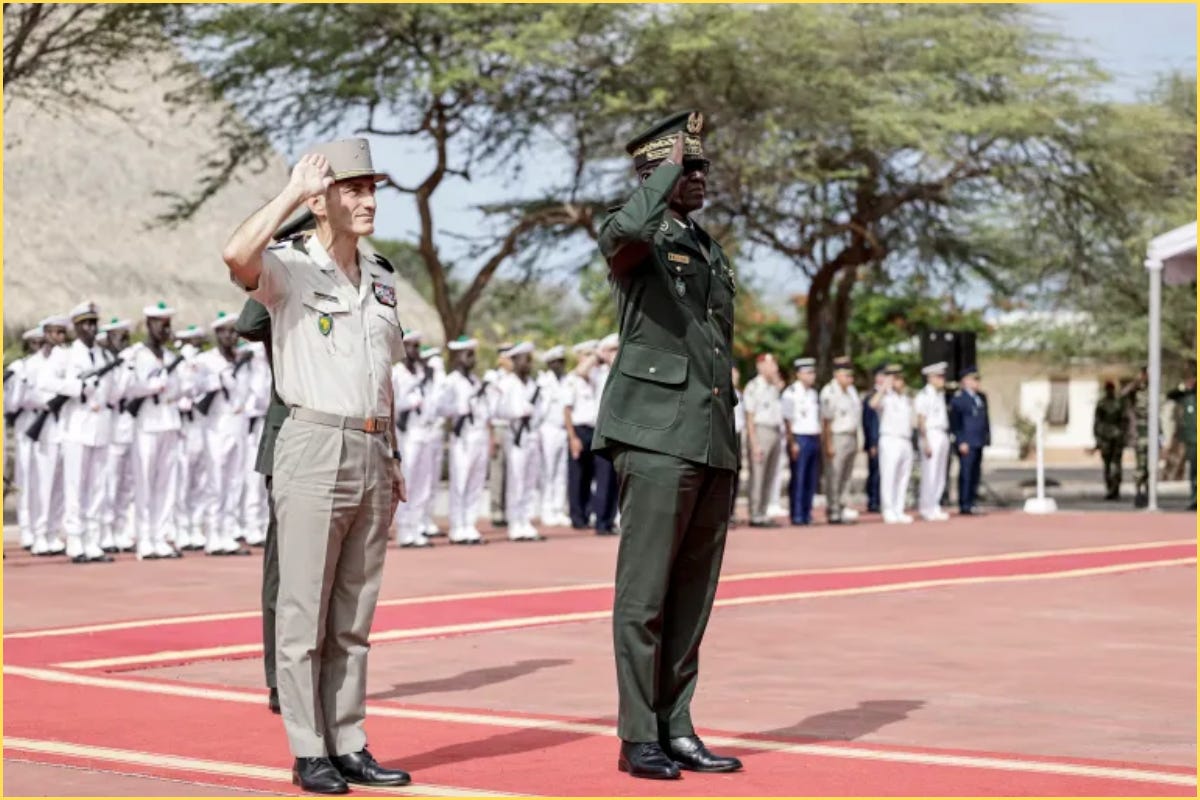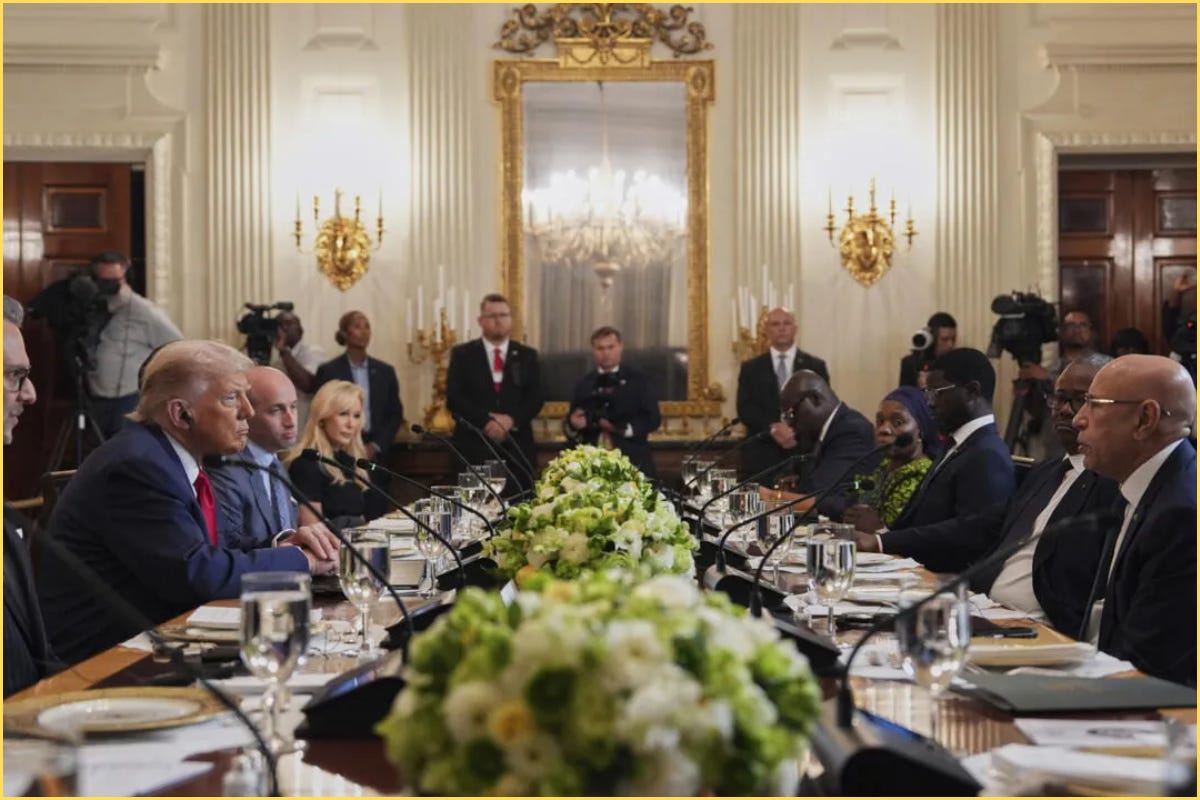senegal’s break with france isn’t freedom yet
faye, sonko, and the tug-of-war between sovereignty and new patronage
The story of Senegal’s new political chapter begins in crisis. When Macky Sall left office, auditors uncovered a fiscal nightmare, debt far higher than reported, deficits disguised, and a country teetering closer to collapse than most realized. The IMF froze funds. Credit ratings tanked. For many Senegalese, this was the final proof that the state was being run as a client regime for foreign institutions and local elites, not for the people.
Bassirou Diomaye Faye came to power promising accountability. He moved quickly, jailing ministers from the Sall years and charging Sall’s relatives with embezzlement. His government introduced a new asset declaration law that would force judges, prosecutors, and state enterprise directors to disclose their wealth. But the law excluded him. Opposition politicians pounced, calling it hypocrisy. How can the president campaign on transparency while shielding himself from scrutiny? It was a reminder of how easily anti-corruption drives can become selective.

The real energy behind the change came from Senegal’s youth. For years, they had carried the burden of resistance. They were protesting Sall’s third-term ambitions, demanding the release of Ousmane Sonko, and facing violent crackdowns. When Sonko was barred from running, they transferred their energy to his chosen substitute, Bassirou Faye. The victory felt like a revolution. Yet a year later, disappointment has set in. Prices remain high, jobs are scarce, and austerity has led to cuts in public projects. The government promised thousands of new youth jobs, but the reality on the ground has been slow to change. The sense of betrayal is palpable: many feel they were sold a dream.
At the heart of the new government lies an uneasy alliance. Bassirou Diomaye Faye is president, Ousmane Sonko is prime minister, and their relationship is showing cracks. Sonko has publicly complained about what he called a lack of authority at the top, fueling speculation that he wants to distance himself from unpopular austerity measures. When he was barred from running, many assumed Faye would simply serve as his proxy. That story no longer holds. Power has shifted, and Sonko’s role is increasingly contested, caught between loyalty to his base and the compromises of governing alongside Faye.

Meanwhile, the economic promises that fueled the campaign have run into reality. Faye’s government set up a commission to review and renegotiate oil and gas contracts, presenting the move as a nationalist victory. But the returns so far are modest, nowhere near the transformative windfall many hoped for. And oil isn’t the only story. Youth unemployment remains stubbornly high, poverty is still entrenched in rural areas, inflation keeps eating into household budgets, and migration to Europe has become a desperate outlet for many. By comparison, Mali’s gold sector brings in hundreds of millions each year through royalties and taxes, while also providing significant local employment because the mining is not dominated by foreign corporations. This underscores the gap between Senegal’s nationalist rhetoric and the limited material gains. For young Senegalese especially, the dream of sovereignty is colliding not just with arithmetic, but with the daily grind of joblessness and rising costs.
Yet, symbols still matter. French troops have withdrawn, with Camp Geille formally handed over, colonial street names stripped away, and schoolbooks rewritten to honor African thinkers instead of colonial figures. None of this puts food on the table, but it reshapes the atmosphere. For decades, Senegal’s rulers wore dependency openly. Today they are forced, however imperfectly, to speak in the language of sovereignty.

Alongside these gestures, Faye has begun pushing policies that aim to cut dependence. His recovery plan promises to fund most of the budget with domestic revenue rather than foreign loans. New taxes on digital services, tobacco, and gaming, together with cuts to bloated state bodies, are meant to raise money at home. Audits and renegotiations of oil and gas contracts are ongoing, and even the CFA franc, which is THE symbol of French control, is now openly debated, with Faye pledging eventual monetary sovereignty. These moves show intent, even if their results are uncertain.
But symbolism alone is not sovereignty. Senegal still borrows from the World Bank, an institution literally designed to enslave global south countries through debt. It still shops itself around to Washington, Ankara, and Beijing. France’s grip may be slipping, but the wider system of patronage remains. The question is whether Senegal can turn signals into structures, and rhetoric into independence.
Right now, the country stands between patronage and promise. Less colonial, but not yet free. Faye and Sonko have shifted the conversation, and that matters. They have not been in office long, and in some ways their early steps mark progress. By simply not ruling like how Macky Sall did, they are already breaking with the past.

The risk is that if they let power harden into self‑interest, the energy that carried them into office will wither. What is needed is a return to the spirit that carried them into power, and the discipline to turn it into material change. Without that, Senegal risks watching the cycle repeat itself under new faces and new patrons, but with the same old outcomes.


